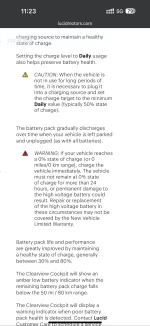It's ultimately the fault of the EPA failing to develop new methodology for EVs. It's still based on ICE, where it fits quite well for that. But EVs don't act the same way. Driver priorities are quite different as well. With most EV drivers charging overnight at home, city range is usually irrelevant. But because of often sparse DCFC coverage (plus it taking way longer and being way more limited), range is a HUGE factor for road trips. The singular headline number for EV range should be reported as 100% highway-only, because that's where it matters. Instead, it uses the "combined" methodology that's heavily city-biased.
In ICE cars, highway efficiency is often better than city. While in an EV, highway efficiency is not only lower, it's a LOT lower.
The EPA needs to create an entirely different methodology for EVs. (And ditch the stupid MPGe while they're at it.)

